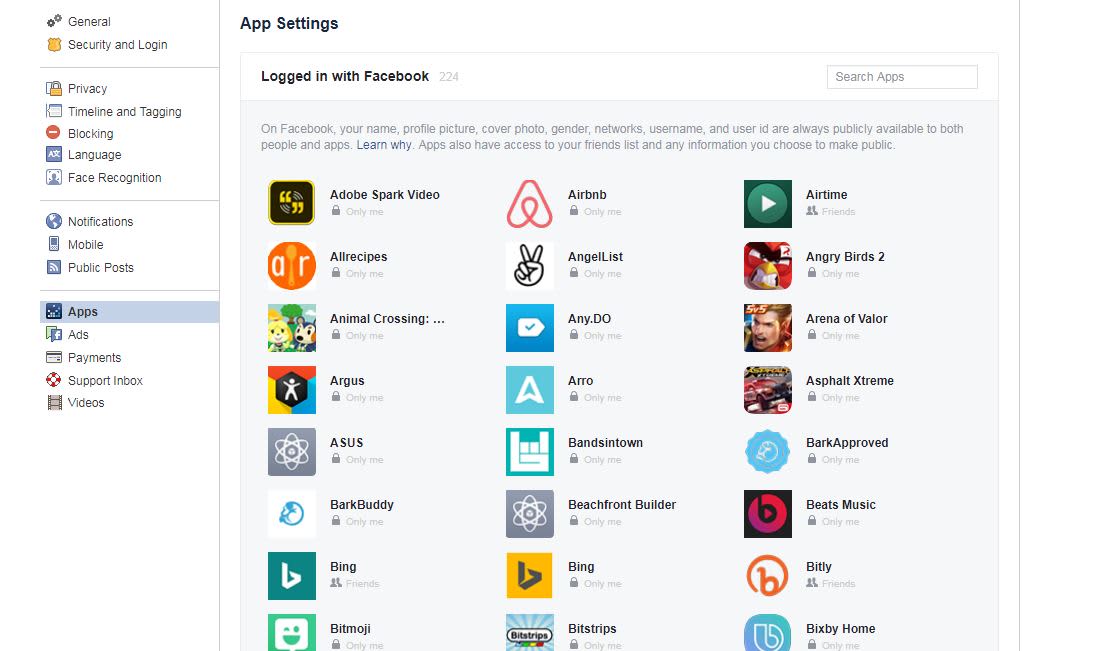The US federal trade commission (FTC) approved a roughly $5 billion (€4.4 billion) settlement with Facebook Inc this week over its investigation into the social media company’s handling of user data, a source familiar with the situation said on Friday.
The FTC has been investigating allegations that Facebook inappropriately shared information belonging to 87 million users with the now-defunct British political consulting firm Cambridge Analytica.
The investigation has focussed on whether the sharing of data and other disputes violated a 2011 consent agreement between Facebook and the regulator.
Shares of Facebook rose after the news was reported by the Wall Street Journal earlier on Friday and closed up 1.8 per cent.
Facebook earlier this year said it had set aside $3 billion to pay for what it said it expected to be a $3 billion to $5 billion penalty.
Facebook declined to comment on the story, which said the 3-2 vote broke along party lines, with Republicans in support and Democrats in opposition to the fine.
The FTC declined to comment.
The settlement still needs to be finalised by the US justice department’s civil division and a final announcement could come as early as next week, the source said.
The fine would be the largest the FTC has levied on a technology company.
Facebook’s revenue for last year hit nearly $56 billion.
The Wall Street Journal report did not say what else the settlement includes beyond the fine, though it is expected to include limits on how Facebook treats user privacy. – Reuters, PA
The FTC began probing Facebook in March 2018 following reports that political consulting firm Cambridge Analytica had accessed the data of 87 million Facebook users. The agency was concerned that Facebook had violated the terms of a 2011 agreement, which required Facebook to give users very clear notifications when their data was being shared with third parties.
Facebook hit with maximum fine under British law for Cambridge Analytica scandal
Britain’s information regulator slapped Facebook with a small but symbolic fine for breaches of data protection law after millions of users’ data were improperly accessed by consultancy Cambridge Analytica.
The 500,000-pound fine is less that 10 minutes worth of revenue for the social media firm worth $590 billion, but is the maximum amount allowed and emphasises how regulators are finding fault in Facebook’s business practices.
Facebook CEO Mark Zuckerberg has faced questioning by U.S. and EU lawmakers over how Cambridge Analytica improperly got hold of the personal data of 87 million Facebook users from a researcher.
The company has promised to introduce reforms to its policies ahead of local elections in Britain next year.
Updating on her investigation into the use of data analytics by political campaigns, Britain’s Information Commissioner’s Office (ICO) said it would fine Facebook, though it can respond to the commissioner before a final decision is made.
Information Commissioner Elizabeth Denham said Facebook had broken the law by failing to safeguard people’s information, and had not been transparent about how data was harvested by others on its platform.
“New technologies that use data analytics to micro-target people give campaign groups the ability to connect with individual voters. But this cannot be at the expense of transparency, fairness and compliance with the law,” she said in a statement.
Future offences could be more costly
The fine is the maximum allowed under Britain’s old data protection law, although that was replaced by the European Union’s General Data Protection Regulation (GDPR) in May, where companies can be fined up to four per cent of revenue for breaches.
Canadian whistleblower Christopher Wylie welcomed the verdict, in a post on social media.
Just to sum up. 1) Facebook broke the law. 2) Cambridge Analytica broke the law. 3) Vote Leave broke the law. 4) LeaveEU broke the law. 5) Brexit and Trump were both won through breaking the law. 6) Facebook let it all happen and covered it up. https://t.co/CAOrP5rKry
— Christopher Wylie ?️? (@chrisinsilico) July 11, 2018
Facebook said it was reviewing the report and would respond soon.
“As we have said before, we should have done more to investigate claims about Cambridge Analytica and take action in 2015,” Erin Egan, Facebook’s chief privacy officer, said in a statement. “We have been working closely with the Information Commissioner’s Office in their investigation of Cambridge Analytica, just as we have with authorities in the US and other countries.”
British lawmakers have launched an inquiry into “fake news” and its effect on election campaigns, and have increasingly focused on Cambridge Analytica. The ICO said it was providing the interim report to help that inquiry.
If you’ve ever opened an app and selected the option to “log in with Facebook” instead of creating a new account, chances are that the people or company behind that app know a lot about you.
The chair of the parliamentary inquiry Damian Collins said that other apps could also have collected data on users in a similar way to the Cambridge Analytica data.
“Given that the ICO is saying that Facebook broke the law, it is essential that we now know which other apps that ran on their platform may have scraped data in a similar way,” he said.
Cambridge Analytica, which was hired by Donald Trump in 2016, has denied its work on the U.S. president’s successful election campaign made use of data allegedly improperly harvested from around 87 million Facebook users.
It has also said that, while it pitched for work with campaign group Leave.EU ahead of the Brexit referendum in Britain in 2016, it did not end up doing any work on the campaign
However, the information commissioner’s report said other regulatory action would include a criminal prosecution against Cambridge Analytica’s parent firm, SCL Elections, for failing to deal with the regulator’s enforcement notice.
It also said it would send warning letters to 11 political parties to compel them to audit their data protection practices.
It said it was investigating both leave and remain campaigners in the referendum, and that it had issued an enforcement notice for AIQ, a data firm that worked for official Brexit campaign Vote Leave, to stop processing retained data from British citizens.
Facebook Apps removal
According to Facebook, each app that you log into will get your gender, networks you belong to, username, your user ID, your full name and your profile picture. They also get access to your full friends list and any other public information on your profile.
And you may have used this method to log into an app dozens or — as I discovered on my account — even hundreds of times.
This issue is at the center of the Cambridge Analytica data scandal that the social media company is facing right now. The political research firm was able to access data on more than 50 million Facebook users through a third-party personality quiz application, without the knowledge or consent of users. The quiz maker wasn’t supposed to pass the information along, but Facebook at the time had no technical measures in place to prevent it. Cambridge Analytica later used this and other information to create detailed psychological profiles of Facebook users and to micro-target political ads at some of them, according to recent reports in the Observer and The New York Times.
How to hunt them down
Here’s how to see what apps have your data and how to cut them off.
On desktop or in the mobile app, tap the drop-down menu on the top-right side of Facebook and select “Settings.”
Select the “Apps” option. This is on the left side of the page on desktop. On mobile, simply scroll down the settings page.
This will show you all the apps that have access to the aforementioned data. In this case — and I had no idea until my editor asked me to write this story — I’ve granted access to 224 apps ranging from Airbnb to apps I don’t even remember, like “BarkApproved.”
To delete an app, just select it and tap the “X” button in the right corner, then select remove. Unfortunately, any data that you’ve previously shared will still be obtained by the app, but it won’t get any new data on you.
You can also manage settings for apps you still want to use. For Airbnb, for example, instead of deleting it I selected the “edit” button while hovering over the app and then unchecked options that let it view my friends list and e-mail address.
This is a "Pay as You Feel" website Please help keep us Ad Free.
You can have access to all of our online work for free. However if you want to support what we do, you could make a small donation to help us keep writing. The choice is entirely yours.


























